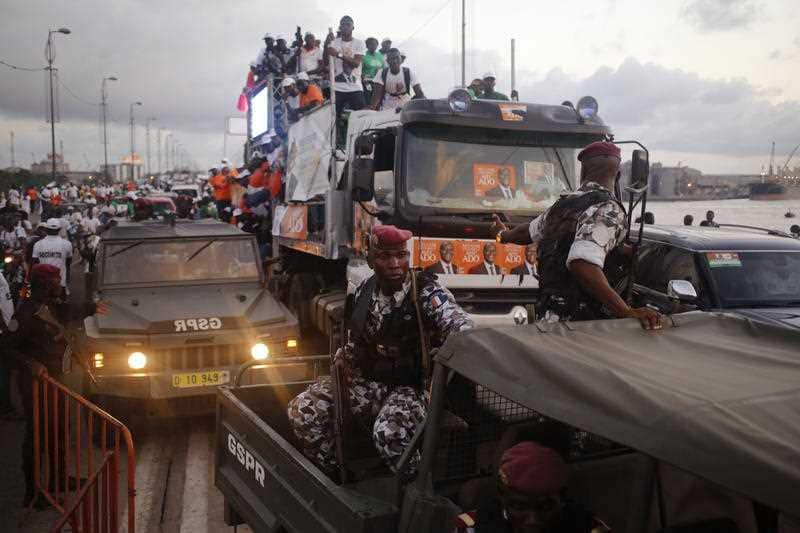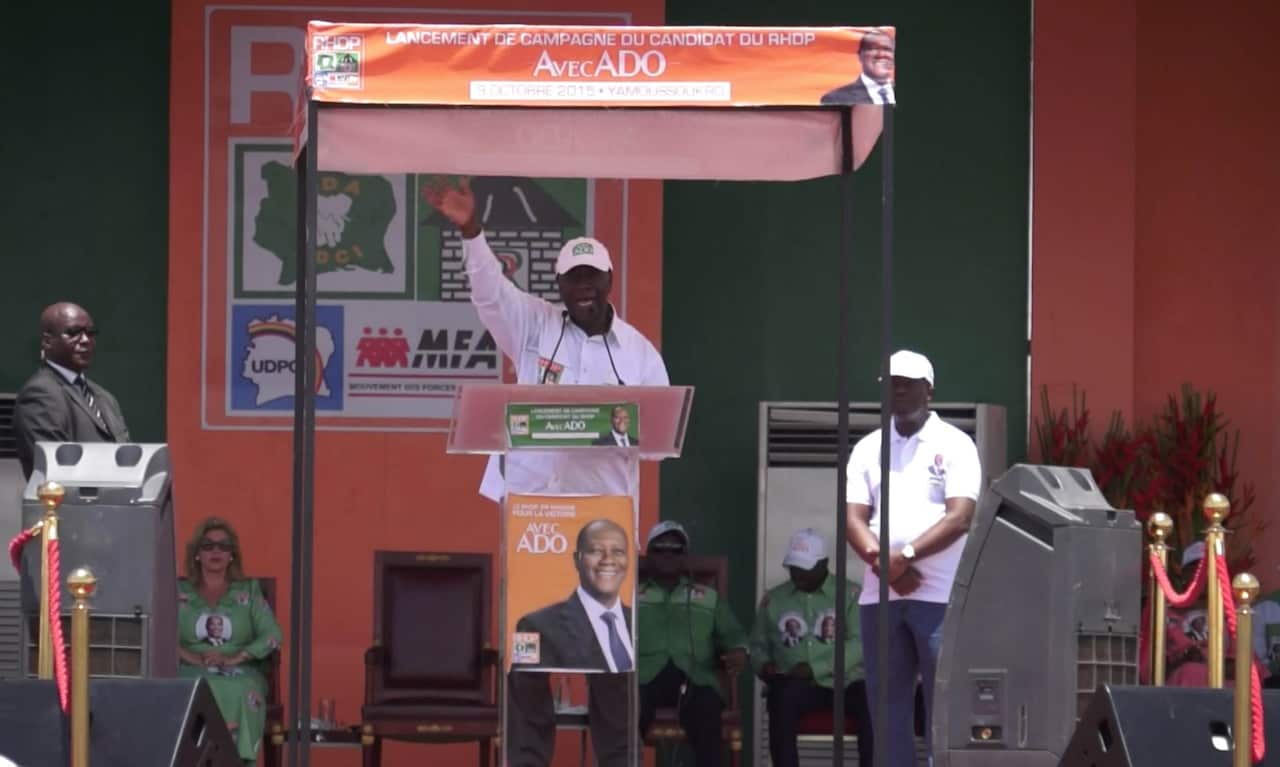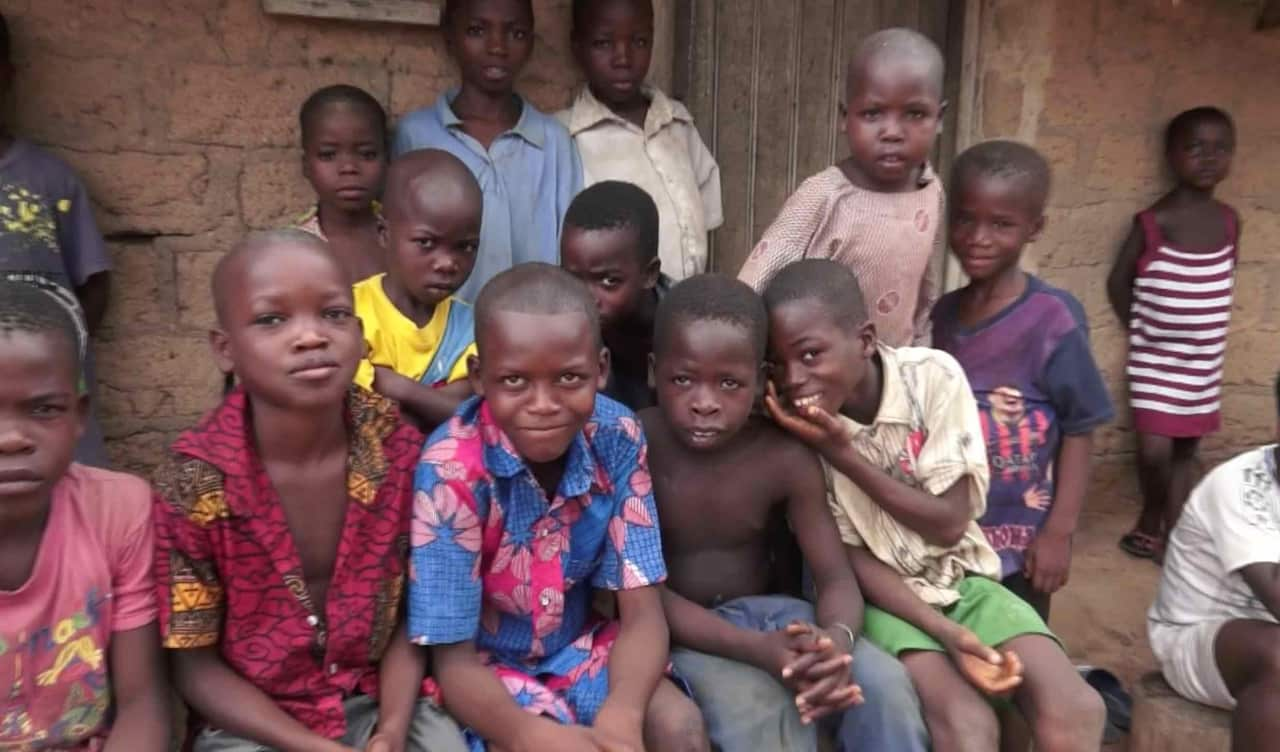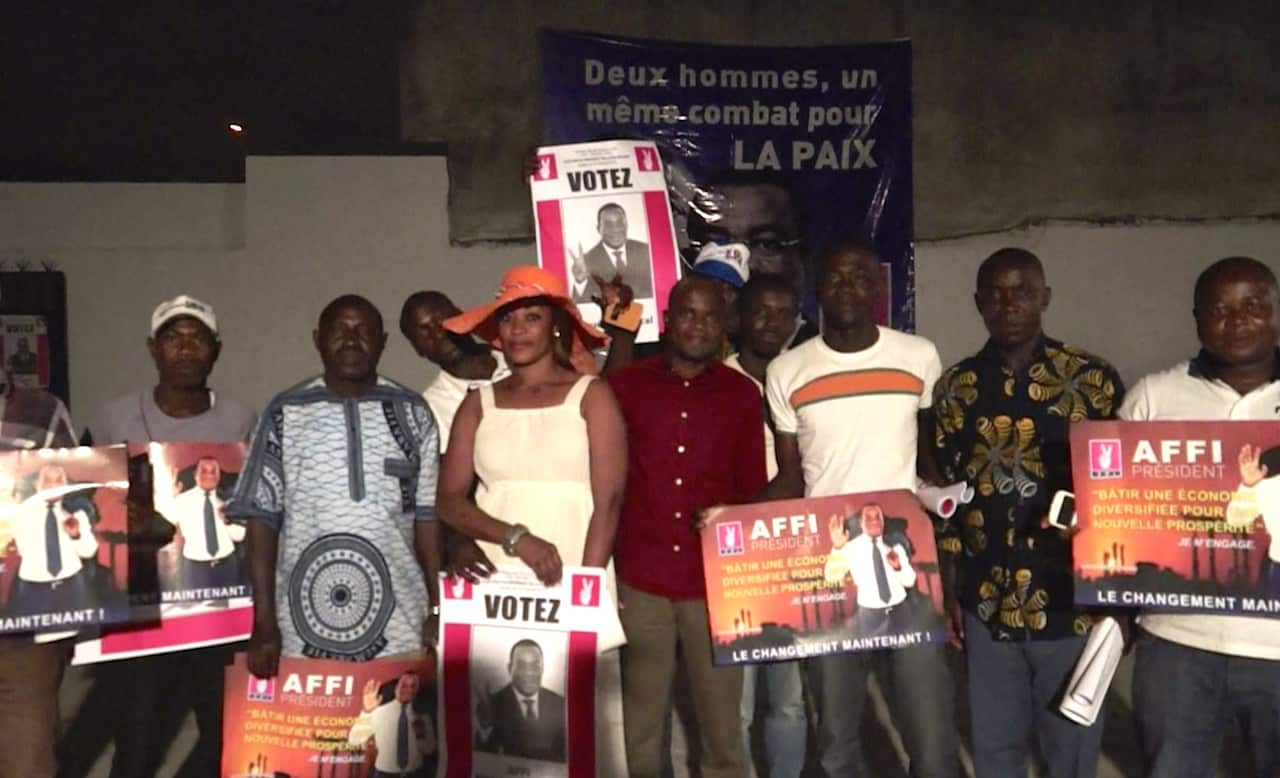The nation of 23 million is expected to vote in current President Alassane Ouattara for a second term, but voting numbers have been down this year.
Ouattara called for a bigger turnout as his Rally of the Republicans (RDR) team flooded Abidjan with music and posters, chanting his campaign catch cry “Avec Ado” - his nickname.
The United Nations said while it expected peaceful elections, it has 15,000 personnel in the Ivory Coast in case of outbreaks of violence.

Ivory Coast troops provide security during a election rally of Ivory Coast incumbent President Alassane Ouattara in Abidjan Source: AAP
Cocoa producers hope for fair price
The world’s premier cocoa producer, often referred to as the "Paris of Africa", is the largest francophone economy in West Africa.
Ahead of voting, President Ouattara launched his vision for a new Ivory Coast "that wins" in the nation’s capital Yamoussoukro.
"We will make sure the Ivory Coast continues to win. And we will go further together, every woman, every young person, our rural residents, every grower, every worker of the Ivory Coast," he said.
He announced a minimum price of 1000 CFA (AUD$2.40) per kilogram for cocoa if elected.
Cocoa producer in the village of Kanzla, Irie bi Léopold, said the higher price would give new hope growers, who want fair prices for their products.
"For me, I’m very happy with the price. We need to have hope to continue here, to work well, to take care of the plants and the plantations. So, I’m very pleased, very happy to continue working because that’s the only way we can eat," he said.
Violence marrs 2010 election
In 2010, both Ouattara, then in Opposition, and former President Laurent Gbagbo both claimed to have won the election and were sworn in.
While Gbagbo claimed voting was rigged in Ouattara’s favour, France, the UN and other international powers supported Ouattara. Military from each side turned on each other and the country slipped into a crisis.
Military from each side turned on each other and the country slipped into a crisis.

Ivory Coast President Alassane Ouattara waving to supporters in Yamoussoukro (Alex Parry, SBS) Source: SBS News
Three thousand people died and around 300,000 left the country - more than 15 per cent never returned.
Reunifying the country
The UN and France assisted Ouattara’s troops in using force to capture Gbagbo and transfer him to the International Criminal Court in the Hague, where he is expected to stand trial next month facing charges of crimes against humanity during the Ivory Coast’s crisis.
United Nations Representative in the Ivory Coast, Mohamed Askia Touré, said the UN is working to restore legal citizenship to hundreds of thousands of people in the country.
He said this is one of the main sources of tension and violence between groups. "The conflict has really exacerbated this division between who is Ivorian and who is not Ivorian and many people find themselves because of their name, because of their belonging to a certain ethnic group, they find themselves totally marginalised,” he said.
"The conflict has really exacerbated this division between who is Ivorian and who is not Ivorian and many people find themselves because of their name, because of their belonging to a certain ethnic group, they find themselves totally marginalised,” he said.

Ivorian children in the village of Guénfla (Alex Parry) Source: SBS News
"Ever since, the country realised that the best way to reunify this country and the best way to be sure that everybody is going to be included in this country is just to tackle this issue of statelessness."
The UN said some stateless people were originally brought to the Ivory Coast by French authorities, to work on cocoa plantations. Others are from neighbouring countries like Burkina Faso and Ghana.
Tensions over nationalism continue.
Gbagbo's legacy must be honoured: supporters

Supporters of former Ivory Coast President Laurent Gbagbo meet in Abidjan (Alex Parry, SBS) Source: SBS News
Youth leader Konate Navigue said the world has a false image that Gbagbo caused the conflict and his party will ensure he returns to power.
"We will make everything in our effort, everything as possible, to make him free, to make him come back here in Côte d’Ivoire. That is our plan and that is our goal," he said in Abidjan.
While the international community supported Ouattara’s claims against Gbagbo, in Abidjan, some still claim it was Ouattara’s military that committed the crimes.
The campaign director fo Gbagbo’s Ivorian Popular Front Party, Idrissa Traoré, recounts the moment when he says he and his chauffeur were captured by Ouattara’s military, five years ago.
"They imprisoned me just here in Adjamé, where I endured a month of torture - and we weren’t alone. There were hundreds of others imprisoned after being falsely accused of planning attacks," he said in Abidjan.
Ouattara originally faced nine other candidates in the election, to which he donated money for their campaigns, but three others withdrew during the campaign period.
In cities and villages, members of various parties are conducting parties and promotional events to advertise their candidates.
Share

